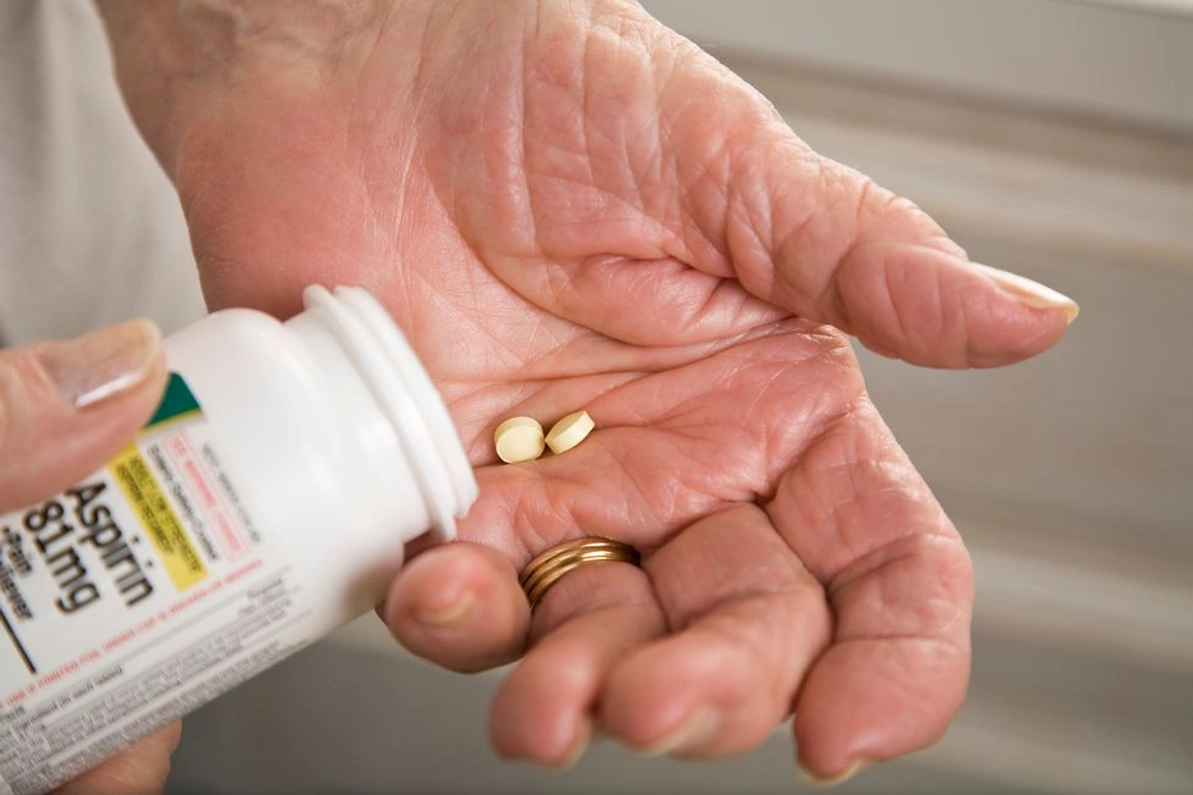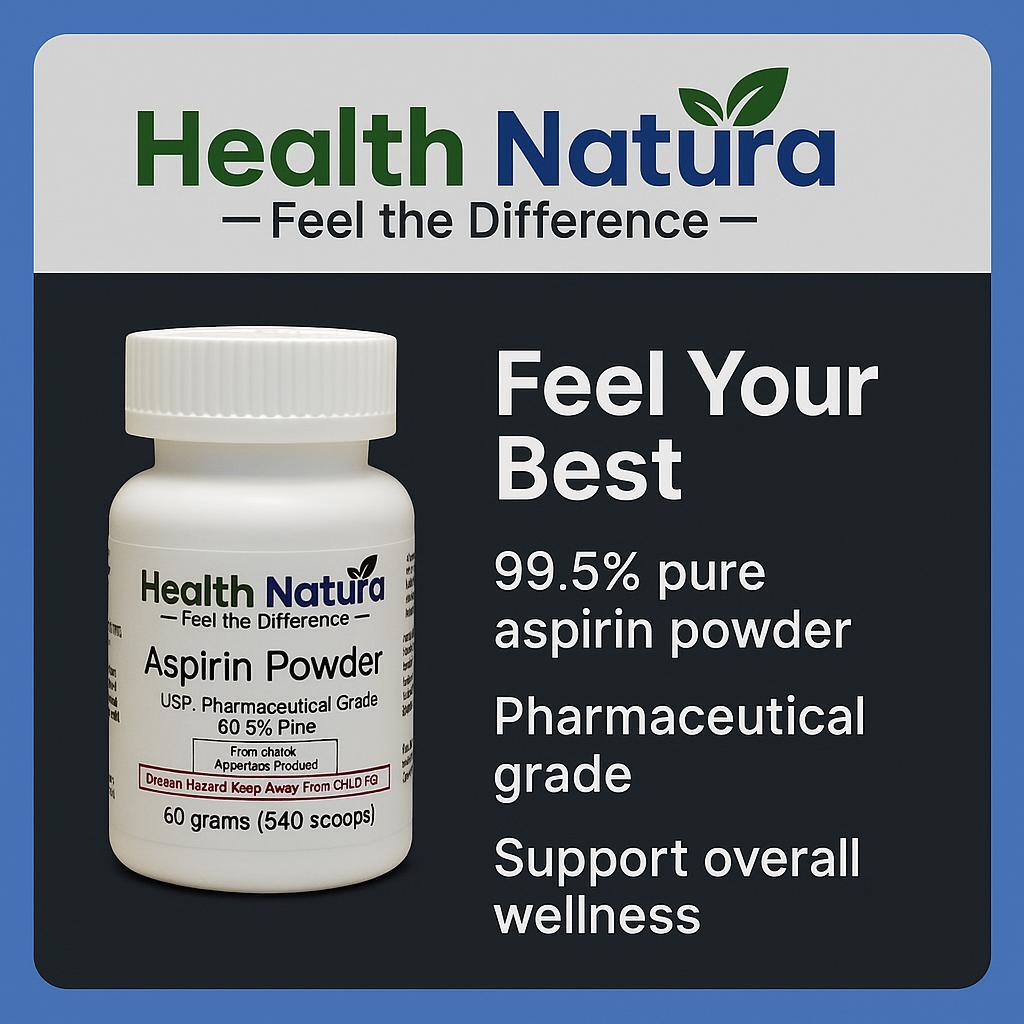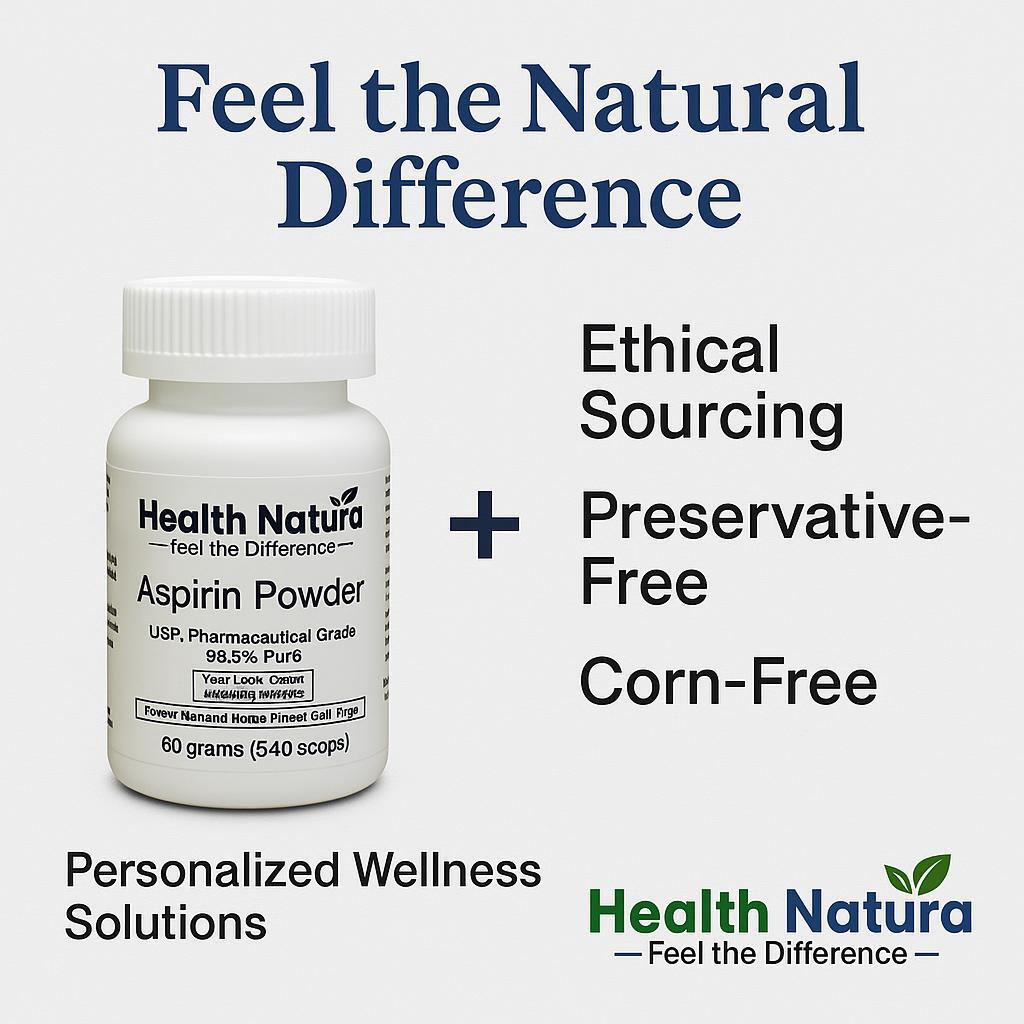Why Most Heart Attack Survivors Skip Their Daily Aspirin (But Shouldn't)
Cardiovascular disease kills more Americans than any other condition. One in four deaths traces back to heart problems [4]. The medical facts about aspirin and heart attack recovery are crystal clear. Yet fewer than half of heart attack and stroke survivors worldwide actually take this medication [6].
This gap between science and practice costs lives. Daily aspirin reduces second cardiovascular events by 25% [6].
Heart attack survivors need to understand something critical. This simple medication works by targeting your blood's smallest cells—platelets. It stops dangerous clots from forming in your arteries [3]. Recent guideline changes affect people without heart disease, not survivors. Anyone with a cardiovascular history should take 75-100mg of aspirin daily [3].
The numbers tell the story. Studies show that 1 in 50 heart attack survivors avoid another cardiovascular problem through daily aspirin. More importantly, 1 in 333 lives are saved from death [3].
Your survival depends on understanding why aspirin matters after heart attacks. The specific benefits it provides. The troubling reasons many survivors stop taking this potentially lifesaving medication. Who should take aspirin and who shouldn't...
Got questions? Ask the author in the comments section at the bottom of this page.
Why aspirin matters after heart attacks
Heart attack survivors face a simple choice. Take a tiny pill daily or risk another potentially fatal cardiovascular event. The science behind aspirin therapy is undeniable.
How aspirin prevents blood clots
Aspirin targets COX-1 (cyclooxygenase-1), an enzyme found in platelets [6]. These microscopic blood cells normally seal cuts and vessel breaks. After heart attacks, this same clotting mechanism becomes lethal.
Plaque-narrowed arteries create perfect conditions for dangerous clots. Platelets stick together and block blood flow to your heart or brain [2]. Aspirin stops this process by preventing platelet aggregation [3].
What does aspirin do for the heart?
Post-heart attack aspirin provides three critical protections:
- Prevents recurrent heart attacks by maintaining arterial flow
- Blocks dangerous clot formation
- Reduces stroke and cardiovascular event risk
Daily aspirin therapy cuts the risk of a second cardiovascular event by approximately 25% [3]. Long-term use reduces yearly serious vascular events—nonfatal myocardial infarction, nonfatal stroke, and vascular death [6].
Aspirin and heart attack prevention: the science
The ISIS-2 trial established aspirin's lifesaving potential. One month of low-dose aspirin started immediately after a heart attack prevented 25 deaths and 10-15 nonfatal events per 1000 patients [5].
The Antithrombotic Trialists' Collaboration analyzed 16 trials with over 17,000 subjects. Results confirmed significant reductions in serious vascular events [5]. Aspirin reduced the risk of recurrent stroke and death without increasing the risk of hemorrhagic stroke [6].
Healthcare professionals recommend 75-100mg for heart attack survivors [6]. This precise dosage maximizes cardiovascular protection while minimizing side effects compared to higher doses [5].
The benefits of daily aspirin for survivors
Daily aspirin delivers measurable protection for heart attack survivors. The research data confirms what cardiologists have known for decades.
Lower risk of a second heart attack or stroke
Studies from the 1970s and 1980s proved aspirin therapy reduces the risk of a second cardiovascular event by approximately one-quarter [4]. The medication prevents platelets from forming clots that block arteries [3].
Global aspirin usage tells a troubling story. Low-income countries: 16.6% of eligible survivors take aspirin [3]. Lower-middle-income countries: 24.5%. Upper-middle-income countries: 51.1%. High-income nations like the United States: 65% [3].
These numbers represent millions of preventable second heart attacks.
Improved long-term survival rates
The mortality data speak clearly. 5-year all-cause mortality drops 9% in continuous aspirin users versus non-users [6]. The 40-60 age group shows even greater benefit—24% lower mortality with continuous aspirin use [6].
Established cardiovascular disease patients see a 13% reduction in all-cause mortality with daily aspirin [7]. Cardiovascular mortality decreases with a hazard ratio of 0.78 [8].
Benefits of daily aspirin vs. other medications
Aspirin remains "one effective and relatively low-cost option for reducing the likelihood of additional events" [3].
Health Natura's Aspirin Powder provides pure, filler-free aspirin powder that doesn’t contain additional chemicals, flavors, or artificial sweeteners. Perfect for those who struggle with traditional pills or want a pure alternative to chemical-laden baby aspirin tablets.
Clopidogrel studies show 14% better cardiovascular event reduction compared to aspirin [9]. Yet aspirin's proven track record and cost-effectiveness make it the cornerstone therapy. Four decades of research confirm its value for secondary prevention.
The choice becomes simple when you examine the evidence. Aspirin works. The data proves it. Your heart needs this protection.
Why do many survivors stop taking aspirin
Heart attack survivors abandon their daily aspirin despite proven lifesaving benefits. The reasons behind this dangerous pattern reveal critical gaps in patient care and education.
Fear of side effects or bleeding
Bleeding concerns drive most patients to quit aspirin therapy. The medication increases bleeding risk, making cuts take longer to stop and causing easier bruising [10]. More serious complications include gastrointestinal bleeding, with aspirin users facing an 85% higher risk for skull bleeding [10]. Stomach ulcers and heartburn represent common complaints that drive discontinuation [10].
These fears often outweigh the documented survival benefits in patients' minds.
Lack of clear guidance from doctors
Healthcare providers frequently fail to educate patients about aspirin's critical importance. Many survivors report receiving inadequate information about why they should continue aspirin therapy [11]. Patients stop taking aspirin simply because they "feel well and don't think they need to take it" [12].
This communication gap between doctors and patients proves deadly.
Confusion about new recommendations
Recent guideline changes create widespread misunderstanding among heart attack survivors. Many mistakenly believe new restrictions on aspirin use apply to their situation [1]. The distinction between primary and secondary prevention remains poorly understood [13].
Survivors with established heart disease need different guidelines than healthy individuals seeking prevention.
Access and affordability issues
Global aspirin availability varies dramatically by economic status. Low-income countries see merely 16.6% of eligible individuals taking aspirin for secondary prevention [4]. Prescription requirements in some wealthier nations create unnecessary barriers [14]. Forgetfulness contributes significantly to non-adherence, particularly for patients managing multiple medications [15].
These systemic failures cost lives that could be saved with a simple, inexpensive medication...
Who Should and Shouldn't Take Aspirin
Medical guidelines create confusion about aspirin use after heart attacks. The distinction between prevention types matters critically for your survival.
Secondary Prevention vs. Primary Prevention
Secondary prevention applies to heart attack survivors. Primary prevention targets people without heart disease. If you've had a heart attack, stroke, or cardiovascular procedure, daily aspirin remains essential. Guidelines restricting aspirin use apply only to healthy individuals without a cardiovascular history.
Aspirin Works as an Antiplatelet Agent
Aspirin prevents platelets from clumping together. This antiplatelet action differs from traditional blood thinners. Aspirin specifically targets the clotting mechanism that causes heart attacks and strokes.
When Aspirin Risks Exceed Benefits
Bleeding disorders contraindicate aspirin therapy. Stomach ulcers, liver disease, and aspirin allergies create dangerous complications. Certain medications interact with aspirin, requiring careful evaluation.
Age and Bleeding Risk Factors
Bleeding risks increase with age. Doctors adjust dosages for patients over 70, weighing survival benefits against hemorrhage dangers. Individual assessment becomes crucial for older adults.
Evaluating Your Personal Risk Profile
Your healthcare provider must evaluate your specific situation. Bring complete medical history, current medications, and family history. This information determines your optimal aspirin therapy plan...
Conclusion
Heart attack survivors face a simple choice. Take daily aspirin and reduce your risk of another cardiovascular event by 25%. Or skip this proven medication and gamble with your life.
The medical evidence is unshakeable. Low-dose aspirin works by preventing platelets from forming deadly clots in your arteries. Fear of bleeding stops many survivors from taking this life-saving medication. Yet the benefits far outweigh the risks for anyone who has already experienced a heart attack.
Recent guideline confusion creates unnecessary worry among survivors. These restrictions apply to healthy people without heart disease—not to you. Secondary prevention guidelines remain unchanged for heart attack survivors.
Your doctor holds the key to proper aspirin therapy. Bring your complete medical history, current medications, and bleeding risk factors to this conversation. Together, you can determine the appropriate dosage and monitoring schedule for your specific situation.
Millions of survivors have already benefited from this time-tested medication. Advanced cardiovascular treatments continue to emerge, yet aspirin remains a cornerstone therapy with decades of scientific backing. The conclusion is clear—daily aspirin belongs in your prevention strategy if you've survived a heart attack, stroke, or cardiovascular procedure.
This choice represents more than following medical advice. It demonstrates your commitment to long-term survival and cardiovascular health...
Key Takeaways
Heart attack survivors can significantly reduce their risk of future cardiovascular events with a simple, evidence-based approach that many unfortunately abandon.
• Daily low-dose aspirin reduces the risk of a second heart attack by 25% and improves 5-year survival rates by 9% for heart attack survivors.
• Fear of bleeding and confusion about new guidelines cause many survivors to stop aspirin, despite the benefits outweighing risks for secondary prevention.
• Recent aspirin restrictions apply only to primary prevention—heart attack survivors should continue daily 75-100mg aspirin unless contraindicated.
• Only 65% of eligible survivors in high-income countries take aspirin, dropping to just 16.6% in low-income nations despite its proven effectiveness.
• Always consult your healthcare provider before starting or stopping aspirin therapy to assess your personal risk-benefit profile and bleeding concerns.
The disconnect between aspirin's proven benefits and actual usage represents a critical gap in cardiovascular care. For most heart attack survivors, this inexpensive medication offers substantial protection against future events, making adherence discussions with healthcare providers essential for optimal outcomes.
FAQs
Q1. Why is aspirin important for heart attack survivors? Aspirin is crucial for heart attack survivors because it acts as a blood thinner, reducing the risk of future cardiovascular events by about 25%. It prevents blood clots by making platelets less sticky, which helps keep arteries open and decreases the chances of a second heart attack or stroke.
Q2. What are the long-term benefits of taking daily aspirin after a heart attack? Taking daily aspirin after a heart attack can improve long-term survival rates. Studies show that continuous aspirin users have 9% lower 5-year all-cause mortality compared to non-users. It also reduces the risk of serious vascular events, including nonfatal heart attacks and strokes.
Q3. Why do some heart attack survivors stop taking their daily aspirin? Many survivors stop taking aspirin due to fears of side effects like bleeding, lack of clear guidance from doctors, confusion about new recommendations, and access or affordability issues. Some patients also stop because they feel well and don't think they need to continue taking it.
Q4. Is aspirin recommended for everyone to prevent heart attacks? No, aspirin is not recommended for everyone. It's primarily advised for secondary prevention in those who have already had a heart attack, stroke, or cardiovascular procedure. Recent guidelines have become more restrictive for primary prevention in people without existing heart disease.
Q5. How can I determine if I should be taking daily aspirin? The decision to take daily aspirin should be made in consultation with your healthcare provider. They will assess your personal risk factors, medical history, and potential bleeding risks to determine if aspirin therapy is appropriate for you. This is especially important as you age, as bleeding risks naturally increase over time.
Got questions? Ask the author in the comments section at the bottom of this page.
Dr. Peter Kassner, NMD - Biography
Dr. Peter Kassner, NMD, is the founding CEO of Health Natura, bringing 29 years of painstaking dedication to the field of naturopathic medicine. His journey in natural healing began in 1993 at the age of 17, when he embarked on his first apprenticeship before even completing high school...
Dr. Kassner established his first pain clinic, Clinical Therapeutics, in Tuscaloosa, Alabama, in 1996. This eventually evolved into Health Natura, LLC in 2005, reflecting his expanded mission to make Integrative Medicine accessible to those seeking alternatives to conventional treatments.
Throughout his clinical career, Dr. Kassner developed Unparalleled Expertise in immunology, cancer treatment protocols, endocrinology, acute and chronic infectious disease management, neuro-immunology, endocrine-immunology, thyroid iodine therapy, and Lyme disease interventions. His extensive training includes certifications in clinical massage, cranial sacral therapy, energy medicine, homeopathy, herbology, Chinese herbology, acupuncture, reflexology, EAV energy diagnostics, IV chelation, chemistry, and supplement compounding.
After obtaining both Masters and Doctoral degrees in Naturopathic Medicine, in 2005, dissatisfied with the state of commercial supplements, Dr. Kassner established Health Natura's first laboratory, specializing in Custom Compounding of preservative-free, excipient-free formulations with minimal ingredients. This commitment to purity and efficacy led him to retire from clinical practice in 2012 to focus entirely on Health Natura's supplement program.
Dr. Kassner's approach to naturopathic medicine has been profoundly shaped by his extensive travels throughout Western countries and Asia, where he studied diverse healing traditions. This global perspective informs his unique philosophy: delivering High-Quality, Personalized Wellness Solutions rather than mass-produced alternatives with compromised ingredients...
Today, Dr. Kassner continues to revolutionize the supplement industry through careful formulation and ethical sourcing, making Health Natura a trusted resource for those seeking superior natural health products.
* These statements have not been evaluated by the FDA (Food and Drug Administration). This product is not intended to treat, cure or prevent any disease. Statements of potential therapeutic value are the opinion of Dr. Kassner, ND, and are based on his personal and clinical experience. They should not be construed to endorse, condone or promote the use of any product as a medical treatment for any condition. Consult a medical professional before engaging in any self-care or nutritional supplement regimen to ensure safe and appropriate use.
Dr. Kassner has been active in the field of alternative medicine since 1991.
References
[1] - https://jamanetwork.com/journals/jama/fullarticle/2791399
[2] - https://medicine.washu.edu/news/aspirin-can-help-prevent-a-second-heart-attack-but-most-dont-take-it/
[3] - https://www.hopkinsmedicine.org/health/wellness-and-prevention/is-taking-aspirin-good-for-your-heart
[4] - https://mplsheart.org/news/daily-aspirin-it-still-smart-way-protect-your-heart
[5] - https://thennt.com/nnt/aspirin-for-cardiovascular-prevention-after-prior-heart-attack-or-stroke/
[6] - https://www.ahajournals.org/doi/10.1161/ATVBAHA.122.318020
[7] - https://www.nhs.uk/medicines/low-dose-aspirin/common-questions-about-low-dose-aspirin/
[8] - https://www.michiganmedicine.org/health-lab/aspirin-can-prevent-second-heart-attack-or-stroke-many-dont-use-it
[9] - https://pmc.ncbi.nlm.nih.gov/articles/PMC3236445/
[10] - https://pmc.ncbi.nlm.nih.gov/articles/PMC4317158/
[11] - https://ihpi.umich.edu/news-events/news/aspirin-can-help-prevent-second-heart-attack-most-dont-take-it
[12] - https://pmc.ncbi.nlm.nih.gov/articles/PMC7700872/
[13] - https://www.thecardiologyadvisor.com/home/topics/chd/daily-aspirin-recommendation/
[14] - https://pmc.ncbi.nlm.nih.gov/articles/PMC5718934/
[15] - https://www.sciencealert.com/common-drug-better-than-aspirin-for-repeat-heart-attacks-study-finds
[16] - https://www.heart.org/en/news/2023/01/03/heart-disease-and-aspirin-therapy
[17] - https://www.everydayhealth.com/heart-attack/daily-aspirin-can-help-prevent-a-second-heart-attack-or-stroke/
[18] - https://www.cedars-sinai.org/newsroom/the-washington-post-aspirin-lowers-risk-after-a-heart-attack-or-stroke-most-dont-use-it/
[19] - https://www.cedars-sinai.org/blog/new-aspirin-recommendation-advice.html
[20] - https://www.uclahealth.org/news/article/daily-aspirin-no-longer-recommended-to-prevent-heart-disease
[21] - https://www.orthoatlanta.com/health-news/skipping-aspirin-after-heart-attack-raises-odds-for-recurrence
Recent Posts
-
Is Vaginal Estriol Safe After 70? A Doctor's Complete Guide
Half of postmenopausal women experience vaginal dryness. Over half report vaginal itching and irrita …Feb 18th 2026 -
Natural Menopause Relief: How Progesterone and Estriol Work Together
Seventy-five percent of women face disruptive hot flashes and night sweats during menopause [10]. Th …Feb 11th 2026 -
Can Vaginal Atrophy Be Reversed? Expert Guide to Natural Solutions
Can vaginal atrophy be reversed? This condition affects 50-60% of postmenopausal women [2]. Yet most …Feb 6th 2026







